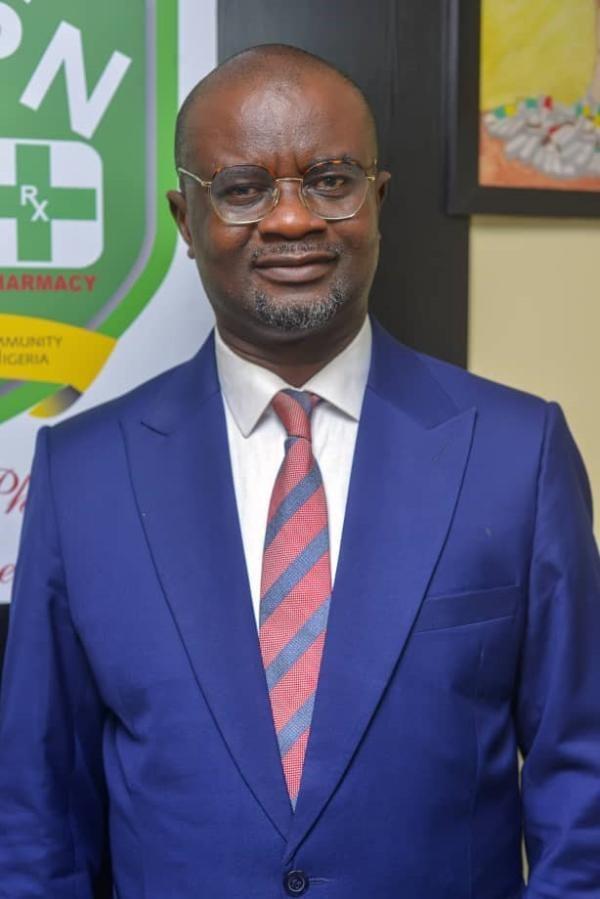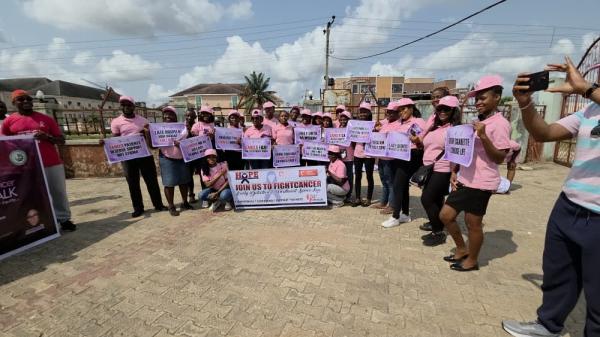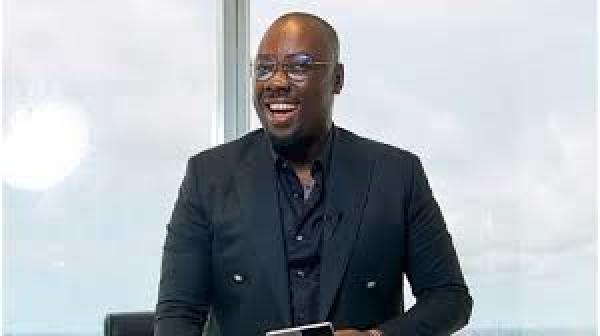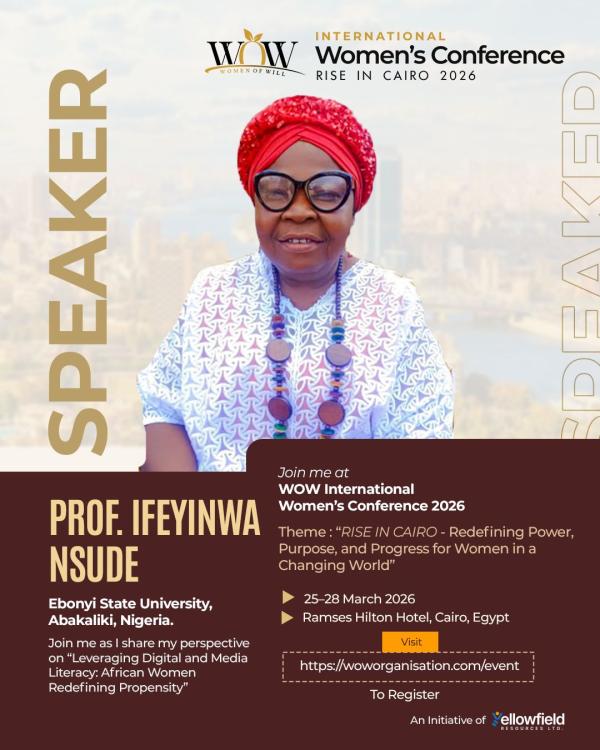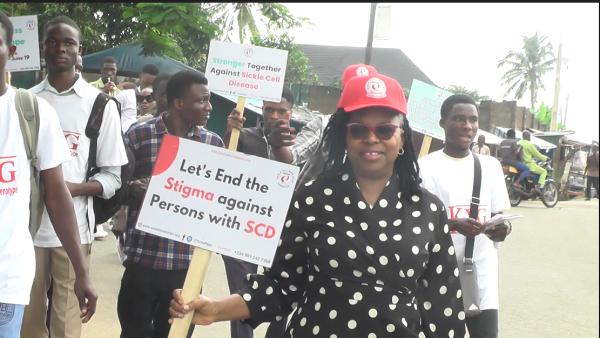
Amidst the energetic atmosphere of the Sickle Cell Hope Alive Foundation's (SCHAF) Rally-Walk, Prof. Chinedu Peace Babalola, a board member of SCHAF and the immediate past Vice Chancellor of Chrisland University, delivered a poignant and educational address during the June 19th World Sickle Cell Day event. The rally, organized by SCHAF under the leadership of its founder, Prof. Adeyinka Falusi, served as a vital platform for raising awareness about sickle cell disease.
She said, “World Sickle Cell Day 2025 bears the theme "Global Action, Local Impact: Empowering Communities for Effective Self-Advocacy.’” “This theme underscores the need to amplify the voices of those affected by sickle cell anemia, directly or indirectly, including patients and their families. Understanding this is vital as we work to combat this public health issue.”
Prof. Babalola elaborated on the genetic complexities of sickle cell disease. “Sickle cell anemia is what we call a genetic disease,” she stated. “In this condition, red blood cells, which are normally round and pliable, become misshapen and rigid, leading to significant health complications. This inherited genetic condition results in the blood becoming ‘sickled,’ which hampers its ability to flow smoothly through the bloodstream. Individuals often endure severe pain, fatigue, and complications that can result in strokes and hemolytic anemia, necessitating frequent hospital visits and sometimes leading to tragic outcomes.”
She emphasized the hereditary nature of sickle cell disease, helping the audience understand the genetic mechanics by sharing critical statistics: “Each person diagnosed with sickle cell anemia has been born to parents who are carriers of the sickle cell trait. When both parents are AS (carriers), there is a 25% chance that their child will be born with the SS genotype. In some cases, all children could inherit the disease if both parents pass on the sickle cell gene, which underscores the importance of genetic awareness.”
As she continued, her tone shifted to one of determination, highlighting the vital role of community engagement in combating this public health issue. “This is precisely why we must create widespread awareness,” she urged the rapt audience. “Making informed decisions requires knowledge about sickle cell disease before starting families. Taking care of individuals with sickle cell is a significant responsibility and can be challenging. Therefore, understanding risk factors is critical.”
Before proceeding, she called on participants for a moment of unity. “Let’s proclaim our theme together!” she exclaimed, inspiring the crowd to echo her words. “Global Action, Local Impact: Empowering Communities for Effective Self-Advocacy!” The chorus resonated through the air, weaving a strong sense of purpose among attendees, uniting their voices for a common cause.
Throughout her address, Prof. Babalola reiterated the alarming reality that Nigeria holds the highest number of individuals living with sickle cell disease globally. “We need to be extremely careful in our relationships and matrimonial choices,” she asserted. “The fewer mistakes we make—especially in knowing our genotypes—the more we can reduce the incidence of this disease in our communities.”
In a collaboration to enhance awareness and support for those living with sickle cell, Prof. Babalola acknowledged Dr. (Mrs.) Olayinka Kotila of the Faculty of Pharmacy at the University of Ibadan, who joined Mr. Odetunde in creating awareness and dispensing maintenance medicines to patients. Additionally, pharmacy students and NYSC members participated actively during the rally, strengthening the campaign's impact.
Encouraging an active approach to knowledge-sharing, she implored those present to become ambassadors of awareness. “Those of us in our local environments have a responsibility to positively impact our communities. If each of us takes it upon ourselves to educate our neighbors about sickle cell disease, we can create a ripple effect of knowledge and prevention.”
The rally served not only as a platform for raising awareness but also as a beacon of hope for families affected by sickle cell disease. Following Prof. Babalola’s address, participants—including families, students, and healthcare workers—were inspired to engage in meaningful conversations about genetic testing and the importance of understanding one’s health.
Prof. Babalola's passion for advocating for effective health education and her commitment to empowering the community echoed through the crowd, igniting the desire to create change. As participants absorbed her powerful message, it became clear that the fight against sickle cell anemia begins with awareness, education, and informed choices. The event marked a significant step forward in the collective effort to combat sickle cell disease in Nigeria.













